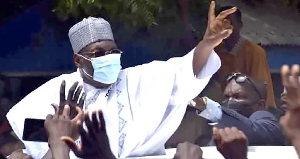President Paul Biya on Tuesday evening signed several decrees dismissing and appointing rectors of state universities and also cultural delegates to some Cameroon embassies in the West and the Republic of South Africa.
Biya's decree sacked three out of the ten state rectors in the country.Rector at the University of Douala, Dieudonné Oyono, who several months ago retired from the Cameroon public service was replaced by Francis Xavier Etoa, former advisor at the Prime Minister’s office who also had retired from the public service ever since 2013. Both the old and incoming rectors are from Biya’s Fang-Beti ethnic group.
The University of Dschang created in 1993, also saw the departure of Anaclet Fomethe who headed the establishment for almost 10 years was replaced by Roger Tsafack Nanfosso. Both men are natives from Menoua division hosting the University of Dschang.
Ibrahima Adamou, appointed Rector of the University of Yaoundé 2, did replace Oumarou Bouba. Both are Muslims from the North region of Cameroon. Contrary to what some CPDM political commentators stated immediately after the appointments were made public that age factor was behind President Biya’s calculation, we of this publication would like to argue that the age limit seem not to be the main reason for these dismissals.
For instance, the Rectors of the University of Maroua (Far North) and that of Ngaoundere, in the Adamawa region are still in office. To be sure, Amvam Zollo, since 2002, is the Rector of the University of Ngaoundere, beyond 9 years prescribed by the 1999 law on public institutions while that of Maroua has been 13 years on the job.
Cameroon Concord understands that the newly appointed academics are all ardent supporters of the ruling CPDM party. Again, another clever manoeuvre from a head of state who only appoints people indebted to him. Like the military, this pattern gives President Biya absolute control of all civilian leaders. President Biya’s management style has politicized universities in the country and this is not conducive to good governance and the effectiveness sought at academic institutions.
Biya also appointed officials in Cameroon embassies abroad. These include South Africa, Germany, Algeria, Belgium, Canada, China, the US, Britain, France, Nigeria and Morocco. Mr.Paul Biya, for sure, has just completed his political comeback after 27 days outside the country. The decrees on Tuesday could be the first of a long series.
Opinions of Thursday, 17 September 2015
Auteur: Cameroon Concord














